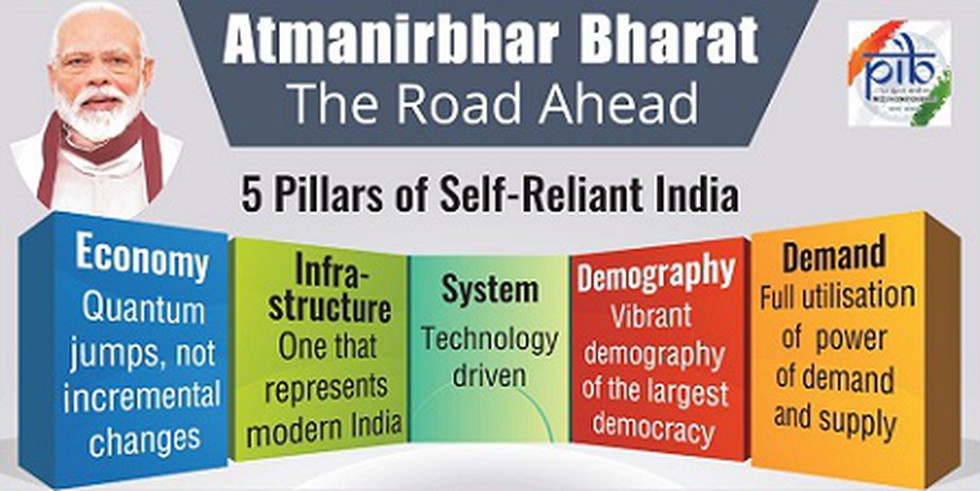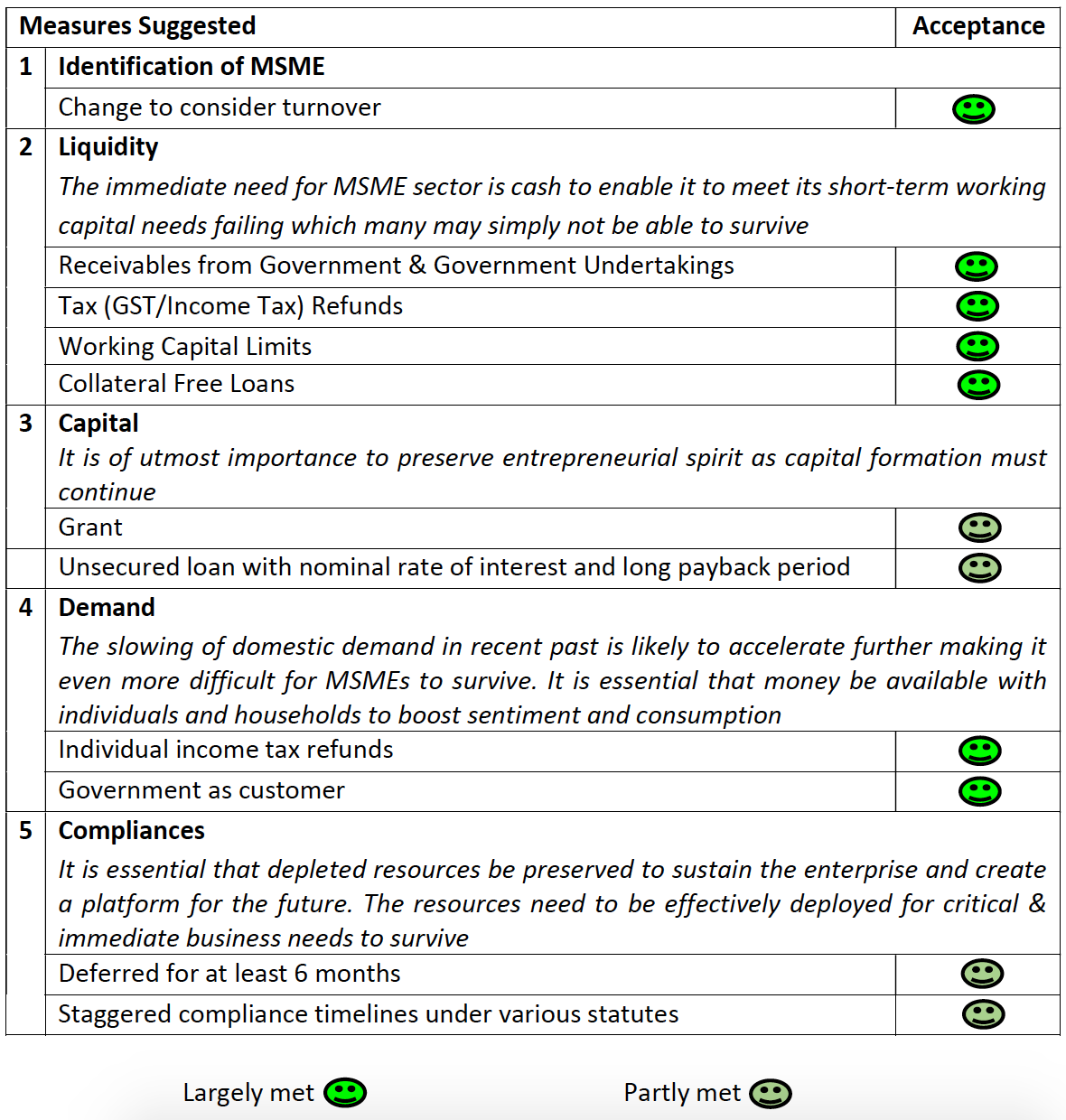
Covid-19 and MSME India – Atmanirbhar Bharat
In my post of April 4, 2020, I had highlighted that impact of Covid-19 pandemic on MSME sector in India, the very backbone of Indian economy, would be long term due to its inherent vulnerability. The need of the hour is innovative solutions and to take firm measures without delay to support the MSME sector on liquidity, supply side and capital needs, taking into consideration both its short term as well as long term needs.
It is heartening that most of my suggestions grouped under liquidity, capital formation, demand generation and compliances find clear resonance in the tranche-1 measures announced by the Hon’ble Finance Minister Nirmala Sitharaman.

The relief measures are much needed and none too soon. But are they enough?
The few suggestions which are not in tranche-1 but in my view require consideration are:
Liquidity: The immediate need for MSME sector is cash to enable it to meet its short-term working capital needs failing which many may simply not be able to survive.
- Receivables from Large Corporates say turnover exceeding Rs 1 billion: Although MSMED Act 2006 provides for payment timelines, the coverage is limited to registered entities. Payments which are due must be released for any MSME irrespective of whether its registered or not.
- GST liability: Under the erstwhile service tax legislation, individuals and partnership firms having turnover upto Rs 5 million in previous financial year were given an option to pay service tax on realisation basis. The option to pay on realisation basis can be extended to the whole of MSME sector effective April 2020.
- Salary and wage support: Salaries/wages for 3 months period April ‘20-June’20 be partly reimbursed to Micro & Small sector enterprises to enable staff retention and prevent crucial skills & knowledge gained with tremendous effort & over time to go waste.
- Utility payments support: The payments towards utility bills be deferral without interest for a period of 3 months apart from reduction in tariffs.
- Bill Discounting Scheme of National Small Industries Corporation: The bill discounting scheme of NSIC requires Bank Guarantee as security as well as sets limits for both Buyer as well as Seller. In today’s circumstances, setting of limits not only causes delays but also acts as an impediment to timely support and can be temporarily done away with. Requirement of Bank Guarantee for transactions with State and Central Government Departments/Undertakings does not make sense at all. There should be no such requirement. Further such bill discounting should be on non-recourse basis.
- Income Tax liability: The income tax rate for partnership firms should be brought at par with corporate tax rate.
Capital: It is of utmost importance to preserve entrepreneurial spirit as capital formation must continue.
- Loan write off: Banks to write off loans to micro enterprises catering to rural areas
Demand: The slowing of domestic demand in recent past is likely to accelerate further making it even more difficult for MSMEs to survive. It is essential that money be available with individuals and households to boost sentiment and consumption.
- Income tax: The income tax rates for individuals should be reduced to make available more cash in hand
I wish to reiterate that for the relief measures to be a success they would need to be unambiguous, widely publicised, promptly executed, strictly adhered to, successfully delivered and tweaked/altered on need basis by adopting a flexible approach.
I would also reiterate the 2 fundamentals which I had stated in my earlier post without which the whole purpose is defeated and the exercise may well be futile. 1. The leadership and decision makers are benevolent 2. There is utmost faith amongst the different players in the system. The positive effects of
measures taken on faith would far outweigh its negatives.
Looking forward to receiving comments and views.

Rajesh Lal
Chartered Accountant
☎: +91-9971033977
✉: rajeshlal@rajeshlalandco.com
LinkedIn: https://in.linkedin.com/in/rajesh-lal

